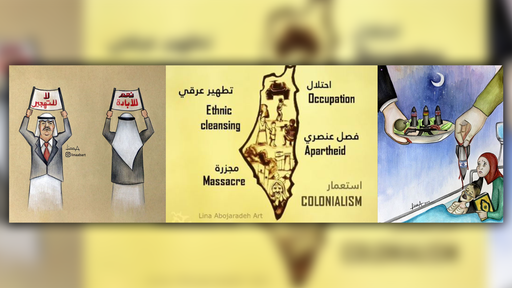At just 13, she stood tall with her hair unapologetically natural, her fists metaphorically raised against an institutional system that sought to erase her identity. Nearly a decade later, South African anti-racism and social justice activist, author, and social entrepreneur Zulaikha Patel remains as unflinching in her resolve as ever.
Speaking to TRT World on the sidelines of the NEXT 2025 organised by TRT World Forum in Istanbul, Patel offered not just a reflection on her personal journey, but a powerful blueprint for resistance, identity reclamation, and the pursuit of healing through storytelling.
"I believe in anti-racism so much because I believe it's at the core of us solving so many other social issues," Patel told TRT World on the sidelines of the NEXT 2025 on Saturday.
"The minute we lose the ability to see the humanity in the next person that looks different from you—that's when racism is planted into the fibre of society, and that's when we desensitise ourselves to the importance of existing in a just and equitable world with people that look different from us,” said Patel, who rose to international prominence for leading an anti-racist school protest and later became a celebrated author of children’s books promoting Black identity and empowerment.
“And so I'm going to continue to speak out. Because I think that we have to continue speaking up," Patel added, offering not just a reflection on her personal journey, but a powerful blueprint for resistance, identity reclamation, and the pursuit of healing through storytelling.
A moment that sparked a movement
Her story begins in 2016 at Pretoria Girls' High School, where Patel, at 13, led a protest against school policies that prohibited Black students from wearing their hair naturally in afros or dreadlocks. The rules also restricted the use of African languages on campus.
“I started a movement against institutionalised racism called #StopRacismAtPretoriaGirlsHigh,” Patel recalled. “That in a sense highlights the current state of South Africa, where as much as the apartheid regime has no longer been constitutionalised, racism hasn't disappeared. What was then constitutionalised has now been privatised and institutionalised.”
The movement sparked a nationwide conversation that, as she pointed out, “had never been sparked ever before since apartheid ended—a conversation around identity, around resistance, around racism.”
For Patel, the protest was not merely a defiance of discriminatory rules. It was the blossoming of a lifelong mission. “Growing up in an interracial family—my father is Indian, and my mother is a Black South African woman—I first-hand got to see racism from my identity not being welcomed or understood,” she explained.
She credits her political consciousness to growing up during the early years of South Africa’s democracy, where racial tensions still lingered despite the end of apartheid.
Drawing inspiration from Frantz Fanon, she emphasised that “every generation has a mission of its own,” adding: “The generation of Nelson Mandela brought political emancipation. But political emancipation doesn't exist without economic and mental emancipation. Laws can change, but people still have to change.”
The pen as a weapon
Patel’s activism soon took literary form. At 17, she began writing her first book, My Coily Crowny Hair, which was published when she was 19. Aimed at children, the book tells the story of Lisa Khanya, a young girl who learns to love her natural afro through a journey guided by her mother and grandmother.
“African hair is more than just hair—it’s identity, ancestry, heritage. It’s a symbol of resistance,” she said, explaining the themes in her book. “I started to write children's books because I believe children become what they read… particularly African children, children of colour, who need to see their identities positively represented.”
Her stories are not just for the young, but also for the adults who once were children denied that validation. “I write them for adults as well to heal their inner child,” she said. “Seeing your identity being positively represented is healing.”
In 2023, Patel followed up with Brave Like Me, a children’s guide to activism and courage. “It teaches children how to be brave, how to use their voices, and that activism has no age or size. Bravery also has no age or size.”
Patel believes that storytelling—whether written, visual, or performative—plays a pivotal role in the healing journey from racial trauma. “When you see an identity that is underrepresented represented in a positive light, it makes you respect that identity,” she explained. “Because when you don't see something for so long, you’ll never understand its significance.”
She hopes her books can challenge long-held prejudices not only among Black or marginalised readers but among white audiences as well. “I write books for humanity, not just people who’ve experienced racial trauma,” she noted. “I hope people of European descent, seeing my books can begin to change their underlying racial thoughts and understand the significance of underrepresented identities.”
The next chapter
As the world watches a new generation of activists redefine the contours of resistance, Patel continues to inspire with clarity and conviction. So, what’s next for Zulaikha Patel?
“We have to continue to speak up for a world that is just and a world that believes in human rights—not just only for a minority of individuals, but human rights for all people,” she said. “And a world that is truly anti-racist.”
Whether through protest or publishing, Patel remains unwavering in her fight for justice. Her life is a testament to the power of youth-led activism, the importance of reclaiming identity, and the healing potential of storytelling.
As she herself powerfully asserts: “Activism has no age. Bravery has no size.”




















